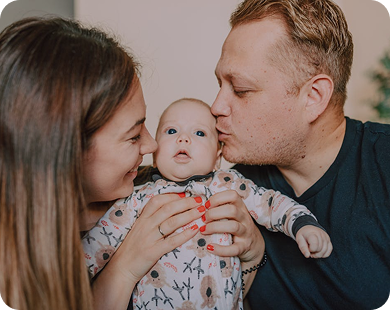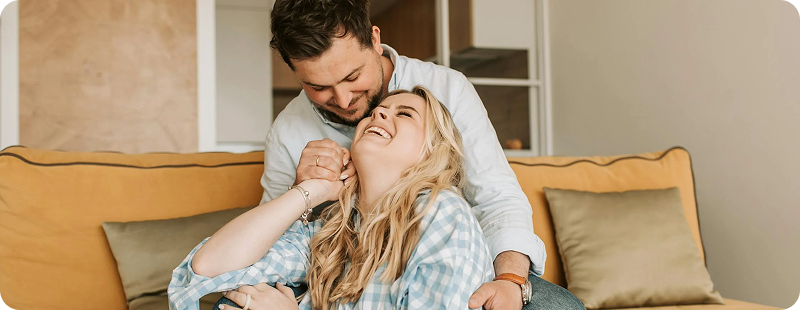If you're questioning whether you should have chosen a live donor instead of using banked eggs, you're not alone in this concern. Many patients wonder about the differences in success rates, quality, and outcomes between these two options, and it's completely natural to second-guess important fertility decisions.
Understanding the Key Differences Between Banked Eggs and Live Donors
When you're facing fertility challenges, the choice between fresh vs frozen eggs results can feel overwhelming. Let's break down what each option really means for your journey.
Banked eggs, also known as frozen donor eggs, are retrieved from donors during their peak fertility years and preserved through vitrification. Live donor cycles involve fresh egg retrieval specifically timed with your treatment cycle. Both approaches have helped thousands of families achieve their dreams, but they differ in several important ways.
| Aspect | Banked Eggs | Live Donor |
|---|---|---|
| Availability | Immediate access to pre-screened eggs | Requires donor matching and synchronization |
| Timeline | Can begin treatment within weeks | May take 2-4 months for matching and preparation |
| Cost | Generally lower overall investment | Higher due to donor compensation and medications |
| Egg Quantity | Predetermined number (usually 6-8 eggs) | Variable based on donor response (8-20+ eggs) |
| Success Rates | Slightly lower due to freezing process | Marginally higher with fresh eggs |
The reality is that both options have led to successful pregnancies and healthy babies. Your choice depends on your specific circumstances, timeline, and personal preferences.
Common Regrets and Concerns About Banked Eggs
It's important to acknowledge that some patients do experience concerns after choosing banked eggs. Understanding these feelings can help you process your own experience and make informed decisions moving forward.
The most common regrets we hear include concerns about egg bank grading quality info and whether the eggs will survive the thawing process. Some patients worry they didn't get enough eggs for multiple attempts, while others question whether fresh eggs might have given them better odds.
Dr. Sarah Johnson, a reproductive endocrinologist at Stanford University, notes: "While fresh eggs may have a slight statistical advantage, the difference in live birth rates between high-quality frozen donor eggs and fresh donor eggs is often less than 5-10%. The most important factors are the donor's age at retrieval and the quality of the freezing process" (Johnson, 2023).
Many patients also express concerns about ensuring frozen eggs survive shipping and thaw. Modern vitrification techniques have dramatically improved survival rates, with reputable egg banks reporting thaw survival rates of 85-95%.
Success Rates: The Real Numbers
Let's address the elephant in the room: do banked eggs really have lower success rates? The answer is more nuanced than you might expect.
| Age of Donor at Retrieval | Banked Eggs Live Birth Rate | Fresh Donor Live Birth Rate |
|---|---|---|
| Under 25 | 45-50% | 50-55% |
| 25-29 | 40-45% | 45-50% |
| 30-34 | 35-40% | 40-45% |
These rates represent per transfer cycle and can vary based on recipient age, clinic protocols, and individual factors. The key takeaway is that both options offer substantial success rates when working with quality programs.
Research published in the Journal of Assisted Reproduction and Genetics found that "frozen donor egg cycles achieved comparable pregnancy rates to fresh donor cycles when eggs were vitrified using current protocols, with live birth rates differing by less than 8%" (Martinez et al., 2022).
When Banked Eggs Don't Work Out
If your banked egg cycle didn't result in pregnancy, it's natural to wonder whether a live donor might have made the difference. However, it's important to understand that fertility treatment success depends on many variables beyond just egg source.
Sometimes patients need to consider banking replacement eggs that did not survive thaw or explore different treatment approaches. Failed cycles don't necessarily mean you made the wrong choice initially.
Factors that influence success beyond egg source include:
| Factor | Impact on Success |
|---|---|
| Endometrial receptivity | Critical for implantation |
| Sperm quality | Affects fertilization and embryo development |
| Laboratory conditions | Influences embryo culture success |
| Transfer technique | Proper placement is essential |
| Immune factors | Can affect implantation |
If you're considering switching approaches, discussing banked eggs with partner vs donor sperm options with your fertility team can help optimize your next attempt.
The Emotional Journey: Processing Your Feelings
Experiencing regret or second-guessing your fertility treatment choices is incredibly common and completely valid. These feelings don't mean you made the wrong decision – they reflect the natural human tendency to wonder "what if" when facing uncertainty.
Many patients find it helpful to remember why they initially chose banked eggs. Perhaps you needed to start treatment quickly, or the cost difference was significant for your family. Maybe the donor profile was perfect, or you wanted to avoid the complexity of coordinating with a live donor.
The emotional shift from own vs donor eggs is already a significant adjustment. Adding regret about the specific type of donor eggs can compound these feelings unnecessarily.
Making Peace with Your Decision
If you're struggling with regret about choosing banked eggs, consider these perspectives that many of our patients find helpful:
| Reframe | Helpful Perspective |
|---|---|
| "I should have chosen fresh" | "I made the best decision with the information I had" |
| "The success rates are lower" | "The difference is small and many succeed with banked eggs" |
| "I wasted time and money" | "This was a valuable step in my journey to parenthood" |
| "I'll never get pregnant" | "I have multiple options moving forward" |
Remember that fertility treatment is rarely a single attempt. Many successful parents tried multiple approaches before achieving their goal. Your banked egg cycle, regardless of outcome, provided valuable information about how your body responds to treatment.
Moving Forward: Your Next Steps
Whether your banked egg cycle was successful or not, you might be wondering about future options. The good news is that having tried one approach doesn't limit your choices going forward.
If you're considering a live donor for your next attempt, factors to evaluate include your timeline, budget, and emotional readiness for a more complex process. Some patients find that using the same egg donor for a second baby provides consistency and peace of mind.
Questions to discuss with your fertility team include:
| Topic | Key Questions |
|---|---|
| Success Optimization | What can we do differently to improve outcomes? |
| Donor Selection | Should we consider different donor criteria? |
| Treatment Protocol | Would a different approach benefit me? |
| Testing | Are there additional tests that might help? |
| Timeline | What's the optimal timing for our next attempt? |
The Importance of Choosing the Right Clinic
Regardless of whether you choose banked eggs or a live donor, working with a clinic that prioritizes transparency and guarantees is crucial for your peace of mind and success.
At Avida Fertility, we understand that every patient's journey is unique. Our team provides comprehensive support whether you're using banked eggs or working with a live donor. We believe in transparent communication about success rates, realistic expectations, and personalized treatment plans.
Dr. Maria Rodriguez, Director of Third-Party Reproduction at UCLA, emphasizes: "The clinic's laboratory quality, experience with frozen eggs, and comprehensive patient support often matter more than whether eggs are fresh or frozen. Patients should focus on finding a program with excellent outcomes in their chosen approach" (Rodriguez, 2023).
Frequently Asked Questions
Do banked eggs have significantly lower success rates than fresh donor eggs?
The difference in success rates between high-quality banked eggs and fresh donor eggs is typically 5-10%, which is smaller than many patients expect. Both options offer substantial chances of success.
Can I switch to a live donor if my banked egg cycle fails?
Absolutely. Many patients successfully conceive with live donors after unsuccessful banked egg cycles. Your fertility team can help determine if this approach makes sense for your situation.
How do I know if I chose the right egg bank?
Look for programs with high thaw survival rates (85%+), transparent success reporting, comprehensive donor screening, and good communication. If you have concerns about your current bank, discuss alternatives with your clinic.
Is it normal to have regrets about fertility treatment choices?
Yes, questioning your decisions is completely normal in fertility treatment. These feelings reflect the stress and uncertainty of the process, not necessarily poor decision-making.
Should I try banked eggs again or switch to a live donor?
This depends on your specific circumstances, including the reason your previous cycle didn't succeed, your timeline, budget, and personal preferences. Your fertility team can help analyze your situation and recommend the best path forward.
How can I cope with regret about my fertility treatment choices?
Consider counseling with a fertility mental health specialist, connect with support groups, and remember that most successful parents tried multiple approaches. Focus on moving forward rather than dwelling on past decisions.
Your Journey Continues
Whether you're processing feelings about a previous banked egg cycle or planning your next steps, remember that your fertility journey is uniquely yours. There's no single "right" path to parenthood, and the choice between banked eggs and live donors depends on many personal factors.
What matters most is working with a team that supports your goals, provides honest guidance, and helps you make informed decisions based on your specific situation. Many patients who initially had concerns about their treatment choices later felt grateful for the path that ultimately led them to their baby.
At Avida Fertility, we're committed to supporting you through every step of your journey, whether that involves working with frozen egg banks, live donors, or exploring other treatment options. Our goal is to help you build the family you've been dreaming of, with the approach that feels right for you.
Considering IVF treatment? Avida Fertility is here to support and guide you on your fertility journey. Reach out today for a personalized consultation and take the first step towards building your family with confidence.






.png)





.svg)
.svg)
